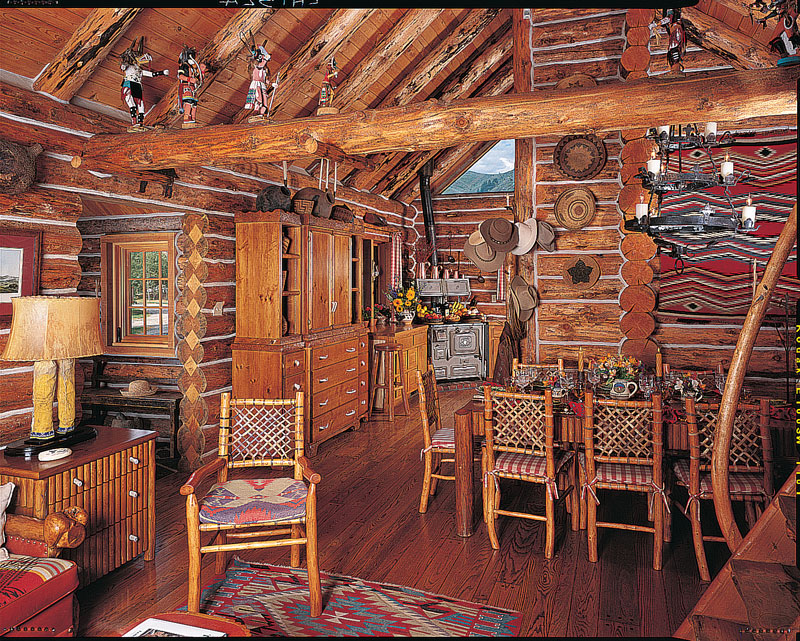Q) Our family cabin has accumulated things from various family members and friends over the years. Some items have sentimental value, even when they’re not used, and I’m having trouble getting rid of things. How can I declutter a cabin that’s been in the family since my grandparents built it?
– Anon., via email

A) Decluttering is a mainstay of self-help books and magazine stories, and it’s getting special attention these days with the runaway bestselling book “The Life-Changing Magic of Tidying Up” by Japanese organization expert Marie Kondo.
While many people find her method extremely helpful – she uses a very clear rule that involves touching an item to be sure it gives you joy – not everyone finds that our American lifestyles, which are often geared toward having stuff, really fit with that. Cleaning out the jumble can get even more complicated when it comes to a cabin or second home that has been the scene of memory-building for years, sometimes for generations and for many different people.
One thing to keep in mind is that the sentimentality that you may feel is attached to some items isn’t necessarily a bad thing. North Dakota State University professor Clay Routledge is a social psychologist who has studied nostalgia, and his lab has found that nostalgia can have several mental health benefits.
It can help people regulate stress and combat sadness and loneliness. For others, it boosts self-esteem and optimism about the future and can foster connections. So if you find that your grandmother’s crocheted blanket or your grandfather’s fishing lures are difficult to toss, perhaps they are indeed giving you joy, after all.
You wrote us about your frustration with clutter, however, so clearly some things are taking up too much space. It may be that it’s not so much that you feel attachment to them, but, rather, that you feel guilty for getting rid of them, says Jeni Aron, owner of the professional organization business Clutter Cowgirl in New York.
One thing she warns against is confusing a person with a thing – getting rid of Aunt Sally’s old mug isn’t getting rid of Aunt Sally! And then there are people in your life, including relatives sometimes, who may actually spark bad memories.
“If there’s a severe negative memory linked up with a thing – if your grandmother wasn’t very nice – those are things to give away,” Aron says. “You can purge feelings along with purging things. If your uncle was a crazy alcoholic, don’t keep his bar as it was stocked. Create new feelings there.”
Even if the memories are good, or even great, there are ways to keep a connection with something while still getting it out of your way, she said.
If there are many crocheted items from your grandmother, for example, pick the best one and get rid of the others. If there’s a dusty old landscape painting on the wall that looks tired, camp it up with a big, vibrant new frame; take it from “ugly to kitschy,” Aron says.
Old fishing lures (again, maybe just a few) could be framed. Furniture can be painted or whitewashed to bring new light or color to a cabin, making those objects both old and new.
“But things that are broken or disintegrating, with holes or stains, that’s called garbage!” Aron says. Go through the games that have been left behind at the cabin for years; if they’re missing pieces or never get played, get rid of them. It can also feel good to donate old furniture, books or clothes for someone else to get some use out of them.
During this process, keep in mind that your cabin deserves to be a home that’s put together with your vision to guide it, Aron says. “How do you want your home to feel?” she asks. “You can remember people in a couple of things that have loaned themselves to this space. A cabin is a kind of retreat, and it’s a valuable piece of property that you’re investing in – this is not a museum or a shrine to the past. If these things are not adding anything to your existence, especially if you’re going there to relax and unwind, it’s not your responsibility to hold onto them.”
Still, decluttering can be difficult, especially in a home you don’t live in every day, full of things that you didn’t necessarily choose. Of course, if it were easy, there wouldn’t be so many books and magazines about it, or professionals like Aron. For that reason, you may want to hire someone like her to at least get you started.
“I give boundaries – I help shed a light on how you want this home to function,” she said. “People like to have those boundaries and get permission to let go of things.”





